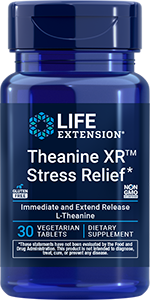What To Do For Insomnia
Do you know what to do for insomnia when you are suffering with stress and anxiety? When you suffer from stress, anxiety, and also depression, it is not uncommon to also suffer with the symptom of insomnia. In fact, insomnia is a very common complaint amongst those with anxiety disorders. Sleeping difficulties can even plague the sufferer to the point of mental exhaustion, also leading to more anxiety, panic attacks and depression as a result.
Anxiety sufferers often worry and will ruminate about all their many concerns in bed, leading to tossing and turning, keeping them from falling asleep. Thoughts about the day, worries, and even the many thoughts about how they should cope if they can't fall asleep at all. Not being able to fall asleep easily often increases frustration and can contribute to obsessive thinking, worrying about their ability to sleep, therefore adding to the vicious cycle of not sleeping. When dealing with this symptom for an extended period of time, a person can develop negative patterns of thinking regarding sleep and add to their own preoccupation with their inablity to sleep. This negative obsession leads to self-sabatoge and futhers the insomnia cycle.
Although insomnia is a common symptom of anxiety, it can further worsen stress, anxiety and panic attacks through chronic sleep deprivation. As we know, lack of sleep affects mood, mental focus, as well as emotional health, and when experienced over a prolonged period, it can contribute to poor physical health as well. Many find themselves with an ongoing battle of the Zzzz's! They find themselves caught in a repetitious cycle that has been going on for months, if not, years!
Can Insomnia Be Cured?
Yes! Insomnia doesn't have to be something you suffer with forever. It also doesn't have to be something that ruins your life. Even when we sleep little, or have a terrible night sleep, we are still capable of doing what we need to do the next day even when we don't feel our absolute best.
What Does Your Personal Struggle With Insomnia Look Like?
Maybe you can identify with the stresses that come when you just cannot sleep. Many people struggle for years with insomnia, maybe even years before anxiety became a disorder. It is common to not really understand why it is such a struggle, after all, most of us are genuinely tired, sometimes downright exhausted! We spend many nights tossing and turning wondering why we could not sleep, spending countless hours looking at the clock wondering when we were going to fall asleep, becoming frustrated and downright angry! At times, even using our pillow as our punching bag.Sometimes, we blame the ticking of the clock, the snoring spouse, and even the light from the moon that shines through the cracks of the window shades, and sometimes, it is the racing heart that would often comes with palpitations that would stop the body from fully relaxing. To be honest, it really does not matter what it is. No matter what it is, if it has your full attention, then we are sure that it must be the reason for our distress.
Frequent trips to the kitchen for that magical glass of milk. After all, we are told that milk is supposed to help us sleep right? More often than not, this is not helpful. If anything, it helps to interupt the tossing and turning and might give you a fresh start when you get back into bed. We become aggravated and upset, wondering how we will accomplish the demands of the next day. Many of us believe that sleeping is absolutely necessary in order to have a productive, stress-free day. But many times, without sleep, we press on, get through the day anyways only anticipating getting back into bed to do it all over again.
It can take a very long time to understand some very important facts regarding insomnia, but it is in these facts that you will ultimately cure your insomnia and get you back to sleeping. The major problem with insomnia is that we care too much! Yes, that's right! Caring so much about sleep to the point of making ourselves more frustrated and angry when it does not happen. We invest in our longterm struggle by analzying everything instead of just accepting it for what it is.
What does your self- talk sound like when you cant sleep?
If you pay close attention you will see how your own negative self-talk is sabotaging your own ability to sleep. Some people naturally fall asleep fast, while others take some time. It is important that you do not compare yourself to other people. It is this fact alone that may help you the most. We must learn to not to care so much about whether we sleep or not, because caring too much just has the reverse effect. Realize that even when you do not sleep, you can still function okay. Perhaps, not as well as you would have liked, but it is still acceptable.
Begin to change how you talk to yourself at night. Instead of beating yourself up with with negative thoughts about not sleeping, instead, focus on repeating some positive reinforcements to yourself. Your new self-talk should should something like this:
Repeat these things to yourself night after night. Repetitions like these are what will help you the most, and it takes a little time to form this new habit to see results. I know it will not seem like it at first, but I assure you, YOU need to be the one who decides how you are going to look at your insomnia. If you repeat the right things to yourself long enough, you will find yourself falling asleep. Night after night, you will fall asleep faster and faster. Once you realize how your own self-talk is sabotating your sleep, and start using positive self-talk, and find yourself sleeping, it will finally click and you'll totally get what I am saying. I am not talking about lying to yourself, I am talking about repeating truths until your brain finally has to listen.
Acceptance is a major key factor to overcoming your struggle with insomnia.
Helpful Tips For When You Cant Sleep
Of course, there are other factors that may be effecting your ability to sleep. Below are things you might consider.
Consider your Diet
Follow a good diet including foods for insomnia. Foods for insomnia, you say?? Yes! Science has alot to say about certain foods and how they can help us get a better night sleep. Consider adding the following foods to your diet:
Remove Caffeine from Your Diet
Remove all caffeine from your diet. Some people are very sensitive to the effects of this powerful chemical. This includes people who are stressed, anxious, or dealing with panic attacks. Things like coffee, tea, soda, and even cigarettes should be limited, if not, completely avoided. Limit your sugar intake. Sugar is another stimulant that can keep you up at night. A simple piece of cake is enough to be the cause for why you cant sleep. I know many people who eat a simple bowl of cereal before bed but most of the time that cereal is loaded with sugar, so, check the box! Be careful and watch what you eat, especially right before bedtime.
Exercise Daily
There are many benefits to exercise. Try to exercise for 20-30 minutes each day. Whether it is aerobic or strength exercises, it does not matter. What matters is that you burn up those negative stress hormones as well as the excess adrenaline your body produces each day. Give your heart a good workout. Regular exercise can help to regulate your heart and help it to reach a lower resting heart rate when you are finished. Exercise also helps to release physical tension in your muscles which will help you accomplish a more restful sleep. Cant sleep? Then be sure to exercise each day. It matters more than you know.
Relaxation Therapy
Before bed, do something that relaxes your physical body. A relaxed body means a relaxed mind. Some ideas would be to take a hot bath, read a relaxing book, or even to work on your personal journal. Do not forget that visualization exercises and progressive muscle relaxation, along with isometric exercises work to promote relaxation too.
Practice Breathing Exercises Regularly
Take time daily to practice your breathing exercises. Through breathing exercises we can effectively reduce stress, lower blood pressure, eliminate anxiety and even put an end to the insomnia. A simple breathing technique at bedtime called the 4-4-4 breathing can help increase melatonin production, induce relaxation and help us fall asleep faster.
To practice this breathing technique, simply follow these steps:
Avoid alcohol
Some people use nightcaps to help them de-stress and go to sleep. Problem is, alcohol gives a false sense of relaxation. If anything, alcohol promotes insomnia. By the time the effects of alcohol wear off by body, it leaves you a tampered nervous system. This means more stress and anxiety than before. This is one of the reasons why people who drink, wake up often and don't feel rested in the morning. Alcohol induced sleep is not real sleep! Alcohol and depression do not mix, nor does alcohol and anxiety.
Consider Sound Therapy
Many people use sound to help them fall asleep easier and faster. Sound therapy can be practiced through using relaxation music and sounds, such as Sleep Solutions (The Calming Collection). You can also experience sound therapy through using a sound therapy machine. These machines are pretty affordable and they allow you to choose which background sound you find most soothing. White noise is another effective sound when trying to fall asleep. Believe it or not, many people run circulating fans throughout the night, not to keep cool, but because the sound is soothing. Today, there are white noise machines that provide the same sound without the breeze. They really come in handy when you are traveling. There is nothing worse than trying to sleep in a strange hotel with no familiar sounds.
Create A Sleep Schedule
By setting regular times for going to bed and waking up, you are setting yourself up for success through habit. Your body learns quickly what to expect and will even prepare you ahead of time.
Shut Off The Electronics
By not watching TV or using phones, tablets or computers shortly before going to bed you will make it easier for youself to fall asleep. Instead of electronics, consider reading a book or listening to relaxation sounds.
Avoid Napping During the Day
Most times naps are okay, especially for those who just need a few minutes to refresh themselves during a busy day. However, for the person suffering from insomnia, this can really make it harder to fall asleep at night. It is best to avoid napping altogether.
Journaling Before Bed
Taking time for writing out your worries is a great exercise that helps to empty your thoughts onto paper. Journaling our thoughts and writing out any ideas on how to solve them, before going to bed will help you forget about them until the morning.
Create The Ideal Sleeping Environment
Make sure your room is comfortable, dark, quiet and fill your space with things that are relaxing to you and bring you a sense of peace and calm. Many find the use of earplugs, light-block curtains and soft blankets helpful.
Is There A Best Medication for Insomnia?
Many people rely on medications to help them when they cant sleep. Although many people do consult their doctors before using insomnia medications, they can become psychologically addicted to them. Addiction to insomnia medications can only aggravate, and add to, an already existing problem. It is important to consider a safer, more natural alternative to insomnia medications. Believe it or not, they exist and they can help. They are most helpful when used in conjunction with all of the information given here.
Natural Supplements for Insomnia
A Safer Alternative
Additional Resources
End Your Sleep Deprivation - Dr. Dement, the father of sleep medicine, and the students of Stanford Sleep and Dreams, share their knowledge so you can sleep healthily and live alertly. Empower yourself by learning about the science of sleep to live life at your highest potential.
Sound-Mind.Org Homepage
Guided Steps to Recovery
Natural Supplements
Want to recover without using medication? There are many different kinds of supplements that are available and very effective in helping people combat the physical symptoms of anxiety.


